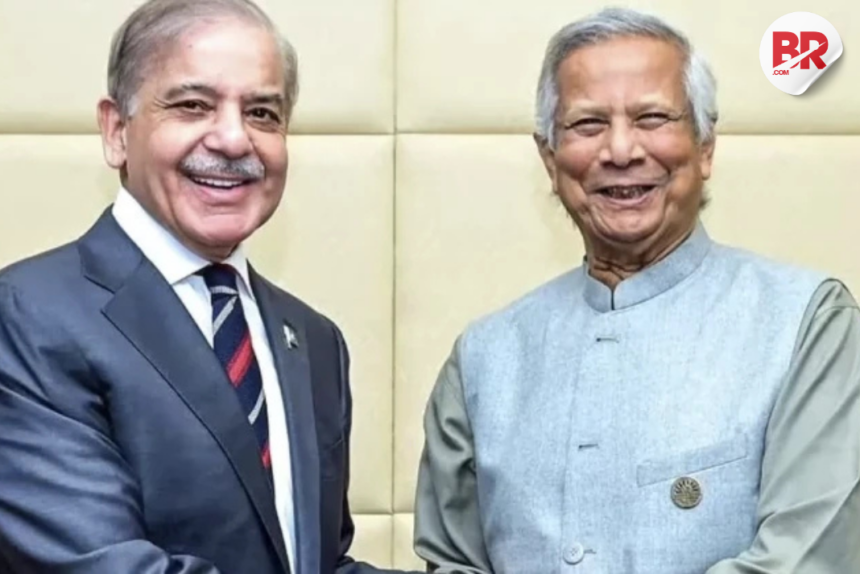
Muhammad Yunus, once famous worldwide as the Nobel Peace Prize winner and founder of Grameen Bank, now faces a difficult political crisis in Bangladesh. After Prime Minister Sheikh Hasina suddenly left office in August 2024, Yunus was made the chief adviser of the interim government.
His job was to organize fair elections and hand power back to an elected government. But instead, Yunus has stayed in power longer than planned, raising worries among the people, politicians, and foreign countries.

From Election Manager to Ruler
Yunus was supposed to oversee elections and ensure a smooth democratic transition. However, his government has delayed elections many times, saying more “electoral reforms” and “national consensus” are needed. Critics believe these delays are excuses for Yunus to keep control and rule for longer.
This delay has caused political deadlock and tension with important groups, especially the Bangladesh Army led by General Waker-Uz-Zaman, who wants elections to happen quickly so democracy can return.
Also Read New Sea Route to Connect North-East India to Kolkata, Bypassing Bangladesh..
Why China and Pakistan Support Yunus
China’s Interests
China sees Bangladesh as a key part of its Belt and Road Initiative (BRI), which builds ports, railways, and power plants across Asia. China wants a stable partner who will keep supporting its projects.
A freely elected government might challenge China’s investments, but Yunus’s government, without voters to answer to, is reliable for China. Yunus’s talk of “delayed elections” sounds like China’s way of keeping control quietly, making Yunus a good ally for Beijing.
Pakistan’s Goals
Pakistan is interested because it wants to weaken Bangladesh’s close ties with India. Under Hasina, Bangladesh worked closely with India on security and economic issues and cracked down on Islamist groups connected to Pakistan’s spy agency, the ISI.
After Hasina left, Pakistan reportedly helped some Islamist groups and foreign players to support her removal. Yunus’s government has since relaxed rules on groups like Jamaat-e-Islami (JeI), allowing them to return to politics.
Pakistan hopes Bangladesh will turn away from India and back Pakistan’s views on Kashmir and history. Yunus’s silence on these issues suggests he supports Pakistan’s agenda.
Also Read India Restricts Bangladesh’s Exports Through Land Ports
The Rise of Islamist Groups
One worrying sign is the return of Islamist parties, especially Jamaat-e-Islami, which was banned under Hasina. Their student group, Islamic Chhatra Shibir, helped lead protests that pushed Hasina out and has been linked to attacks on minorities.
These groups connect with global Islamist movements like the Muslim Brotherhood, showing a move toward religious rule rather than secular democracy.
Yunus’s government is rewriting laws without elections, which many believe aims to bring Islamic rules into the state. Extremist clerics tied to Al Qaeda-linked groups have been freed, and banned organizations like Hizb ut-Tahrir operate openly.
At the same time, secular voices and minority groups face crackdowns in courts, showing a bias toward Islamist views.
Political and Regional Effects
The main opposition, Bangladesh National Party (BNP), is suspicious of Yunus, accusing him of stopping elections and harming democracy. Inside the government, Yunus and Army Chief General Waker-Uz-Zaman disagree over how long Yunus should stay in power.
For India, Yunus’s ties with China and Pakistan are a big concern. India is already fighting terrorism linked to Pakistan-backed groups with tough actions like Operation Sindoor after the Pahalgam terror attack.
If Bangladesh becomes a base for Islamist militants working with Pakistan’s “bleed India” strategy, it could threaten peace in the whole Bay of Bengal region. India will need to carefully balance diplomacy and security to protect its interests.
Bangladesh’s Democratic Future at Risk
Muhammad Yunus’s government is a critical test for Bangladesh’s democracy and the balance of power in South Asia. What was supposed to be a short caretaker role to restore elections risks becoming a longer authoritarian rule backed by China and Pakistan.
This change raises urgent questions about Bangladesh’s independence, democratic rights, and the rise of Islamist forces. For the region, especially India, facing this new reality will require careful watching, clear strategy, and a strong belief in democracy.
Also Read Yunus at It Again: Pushes Economic Union with India’s Northeast












